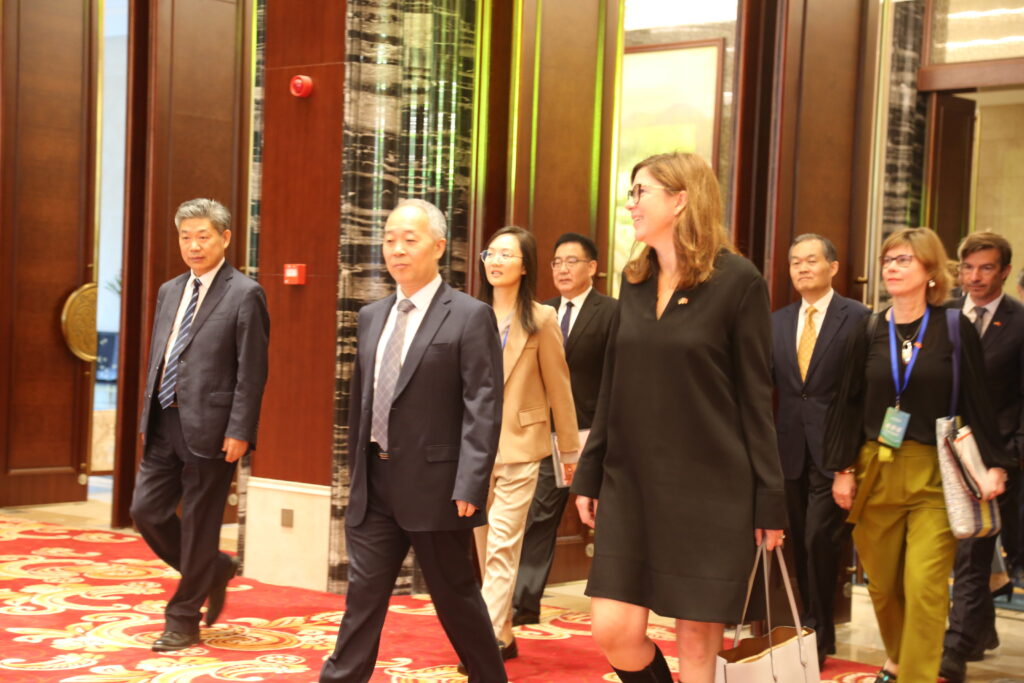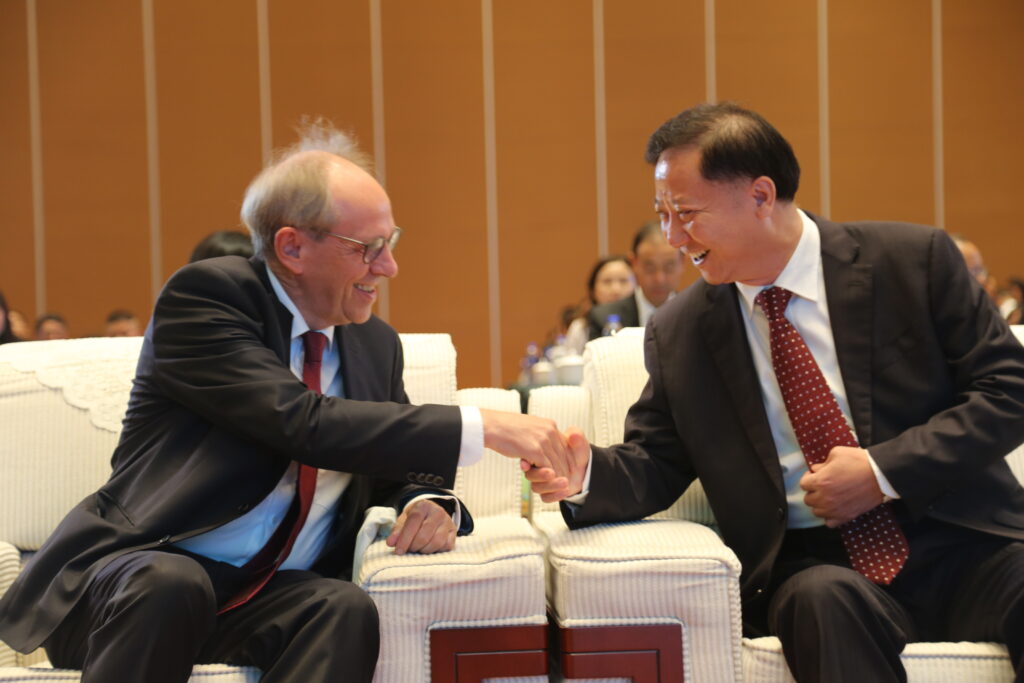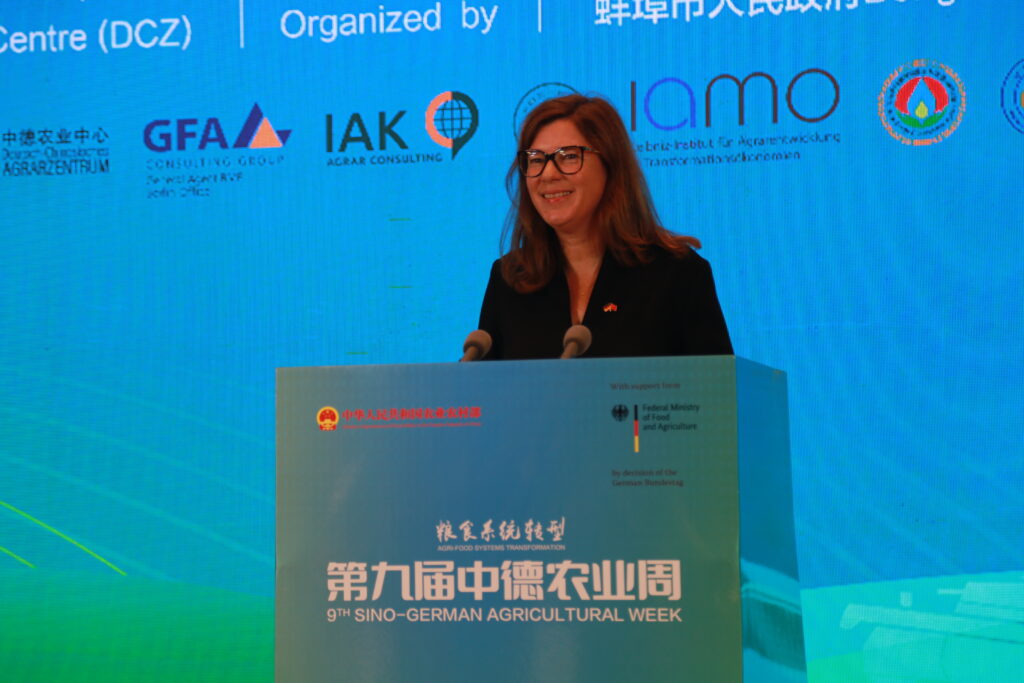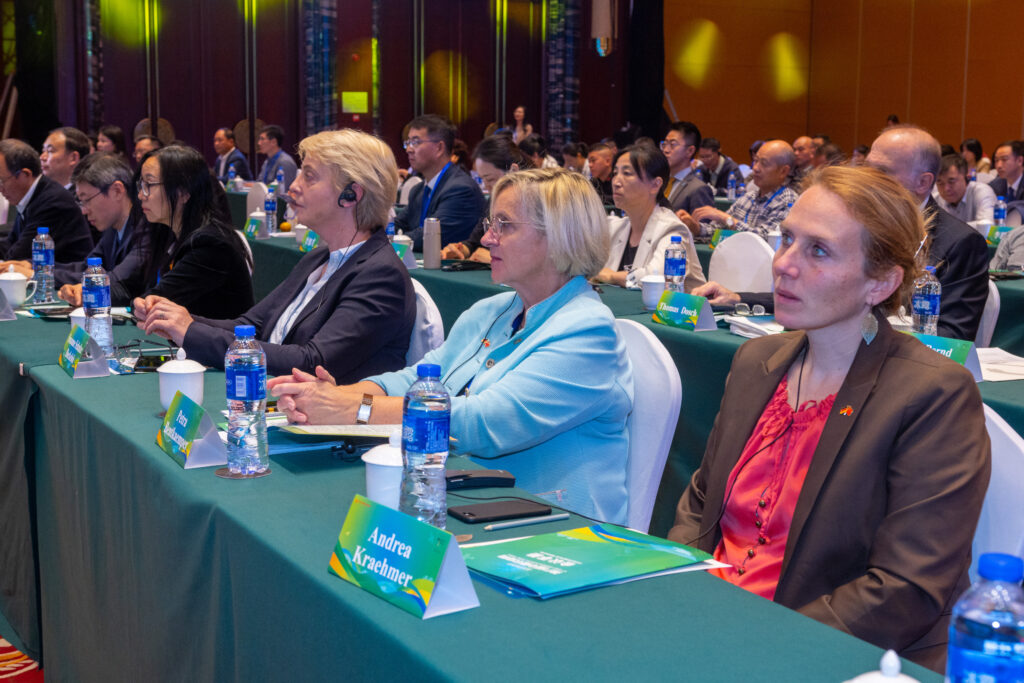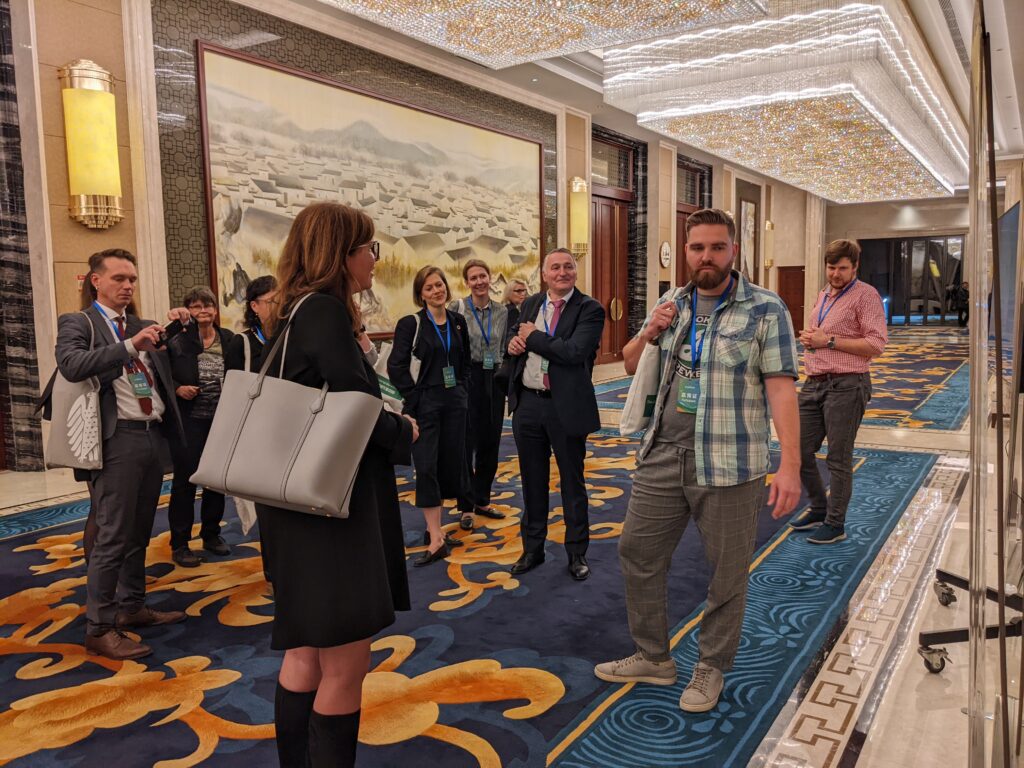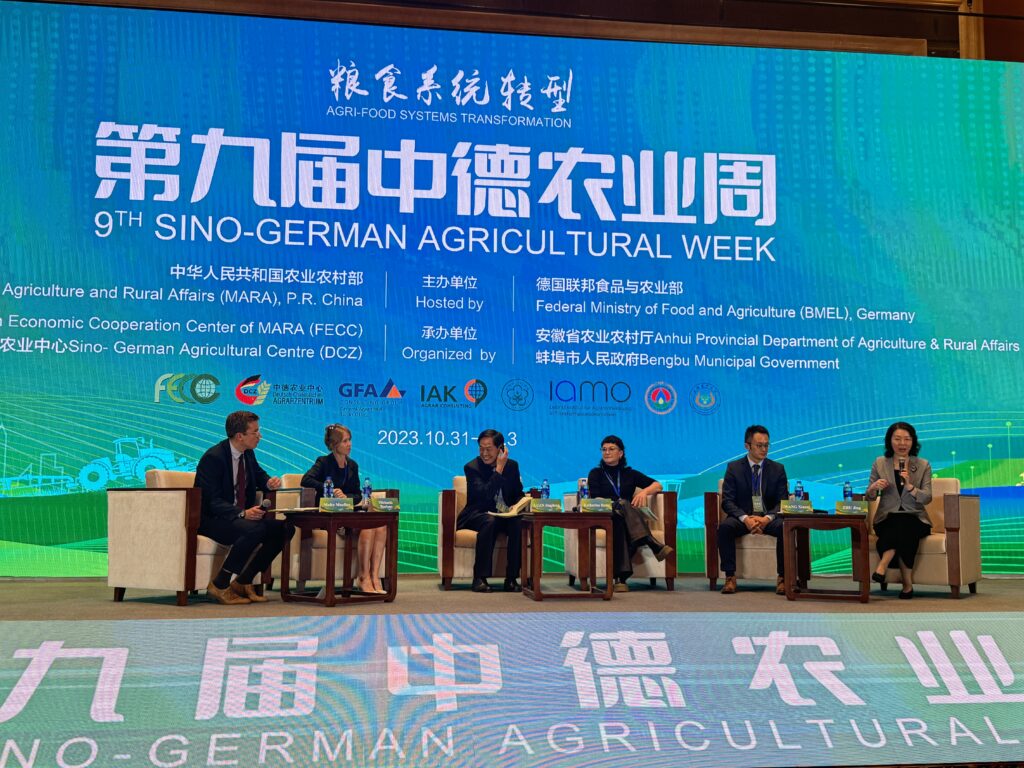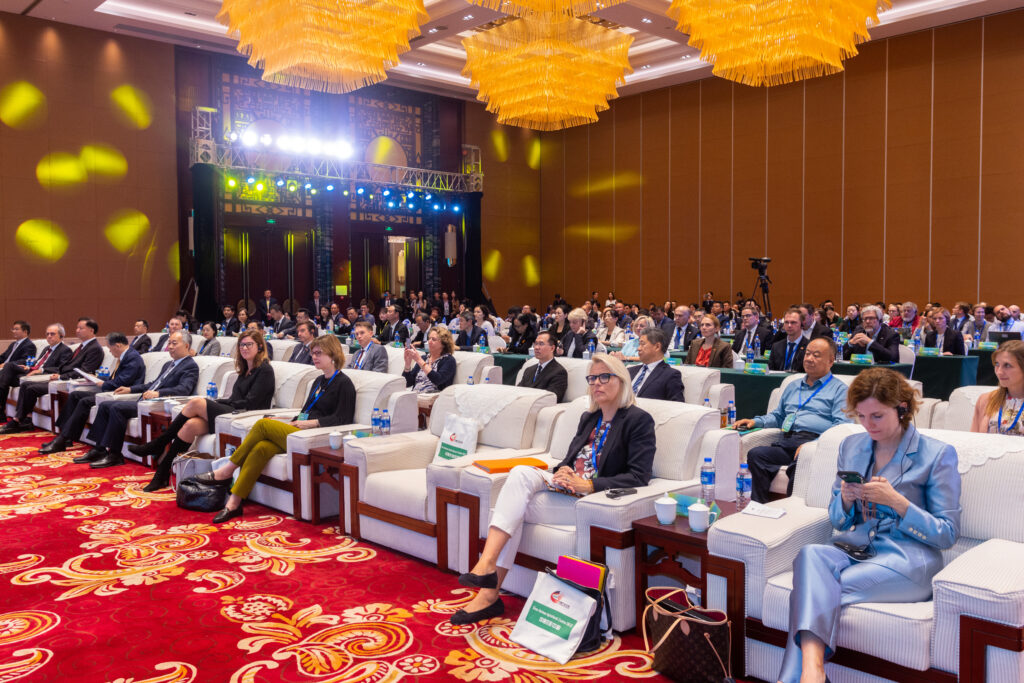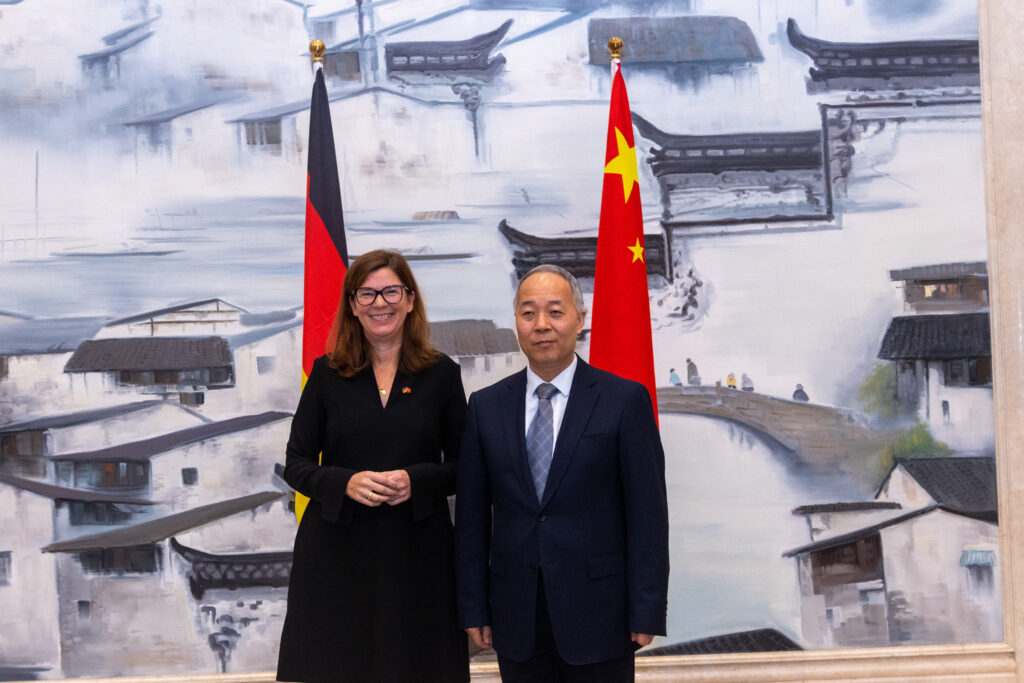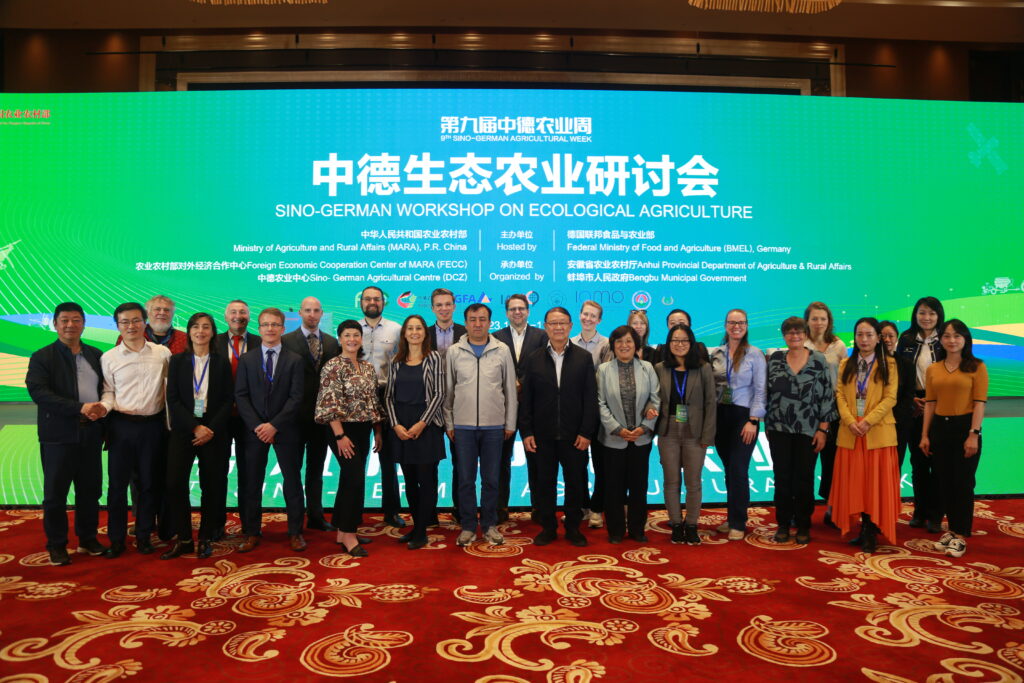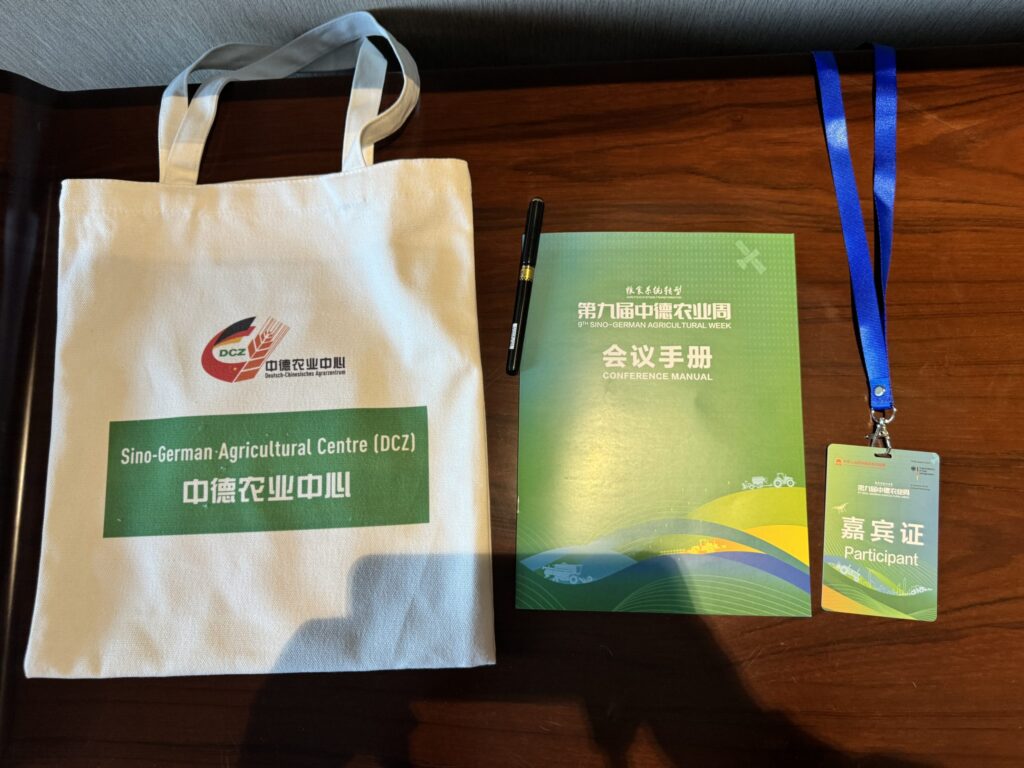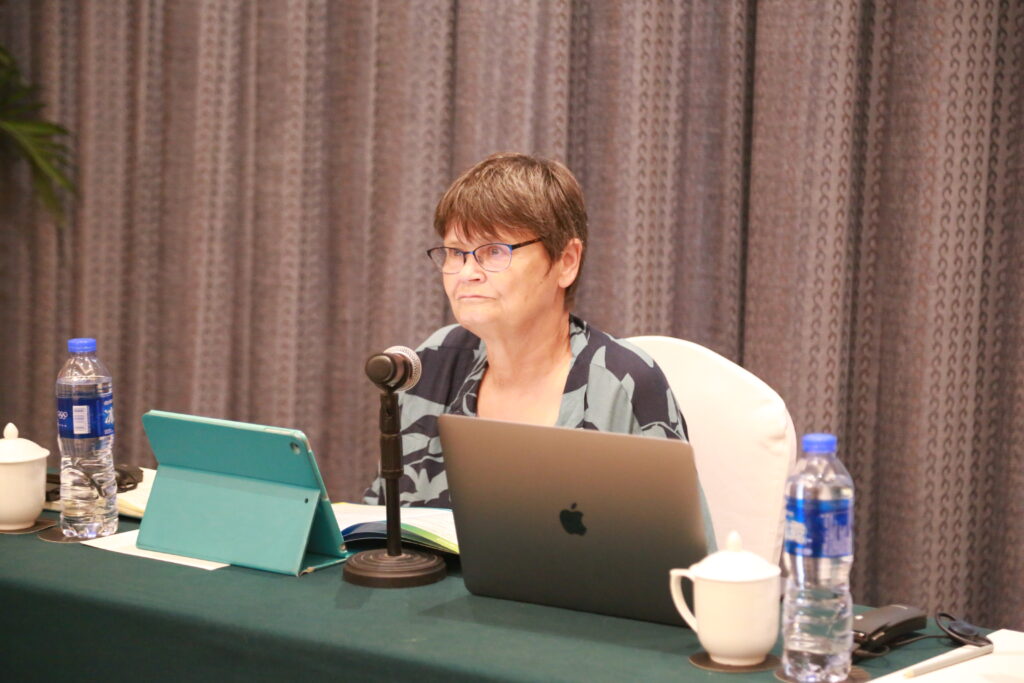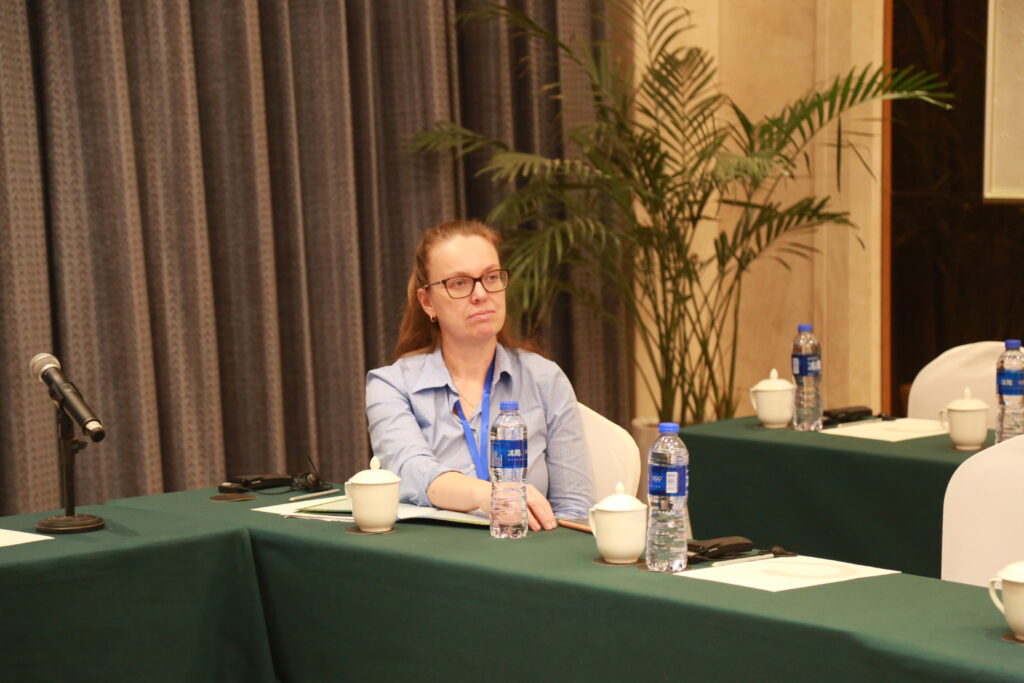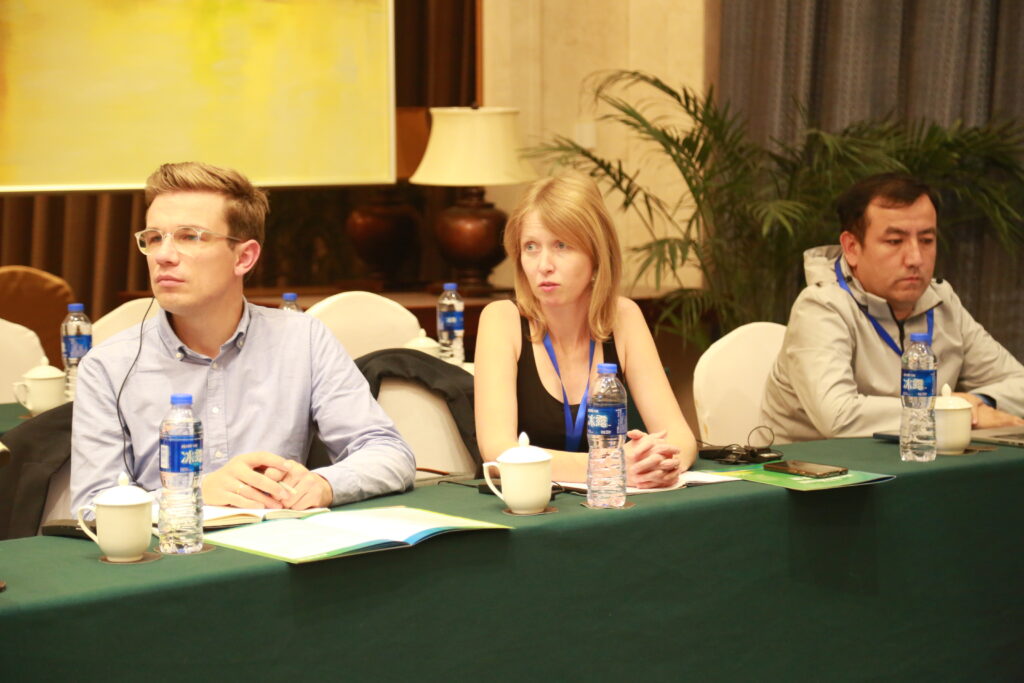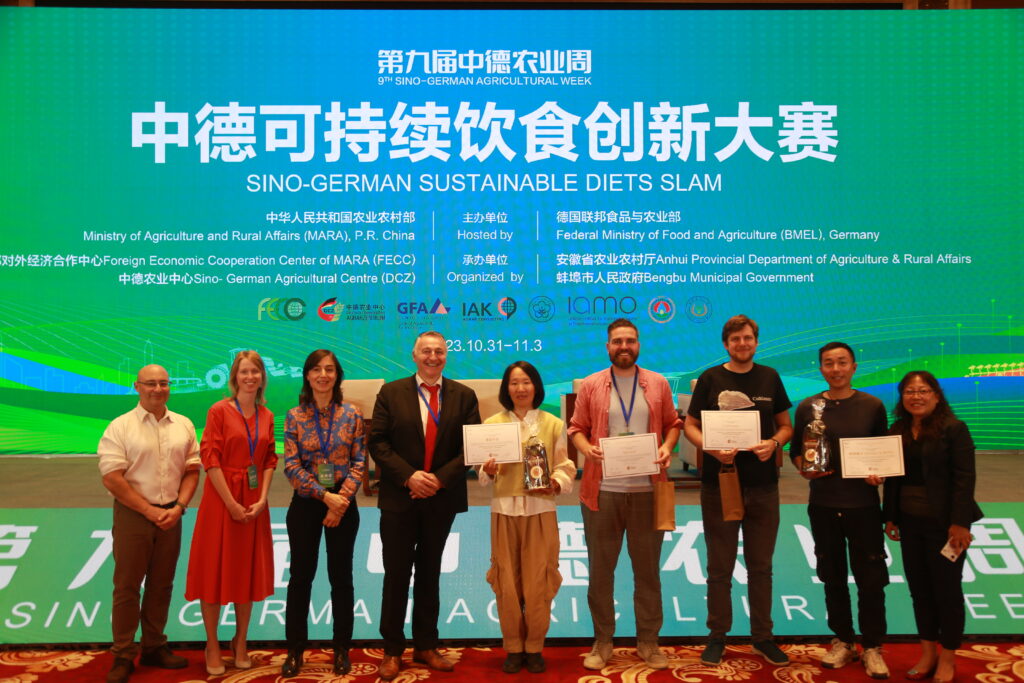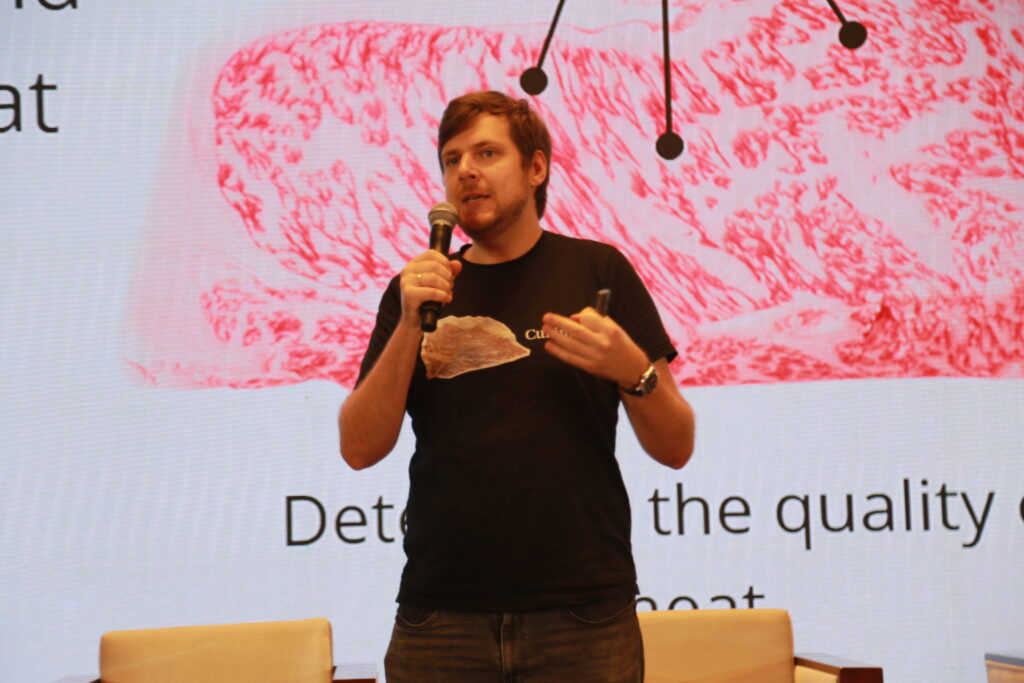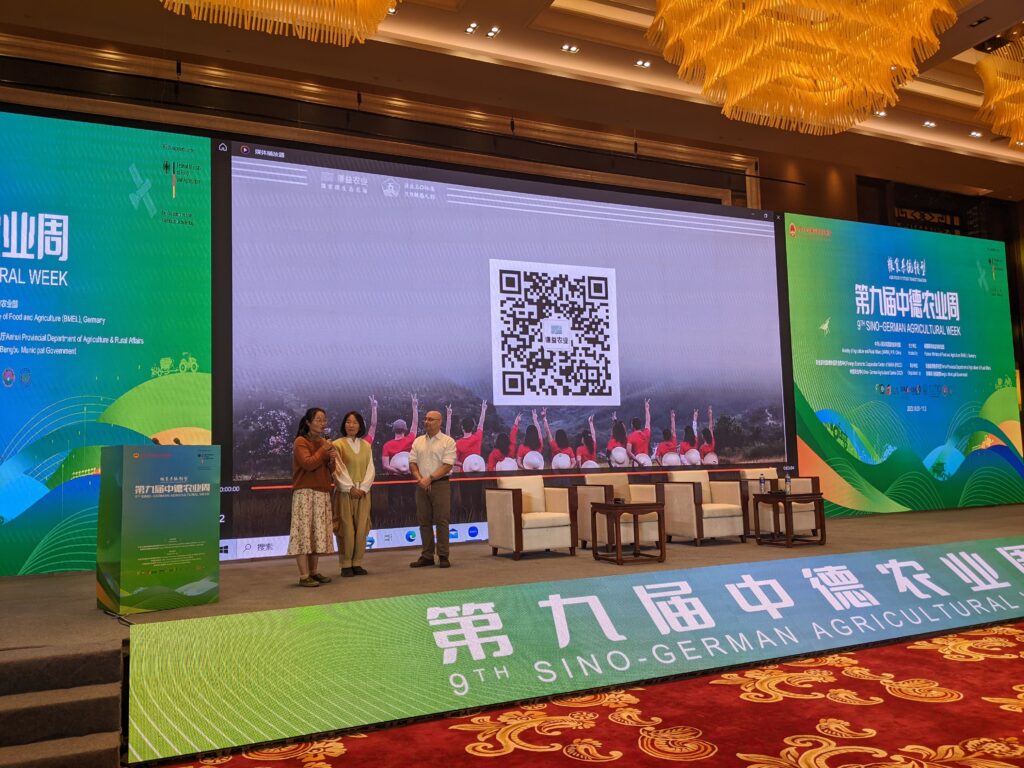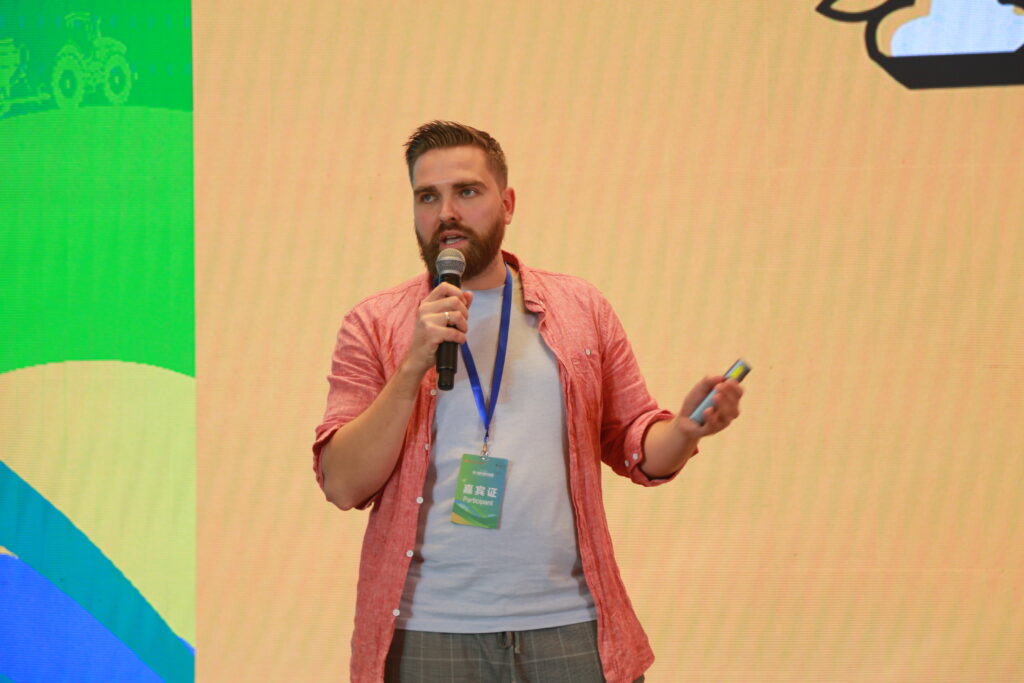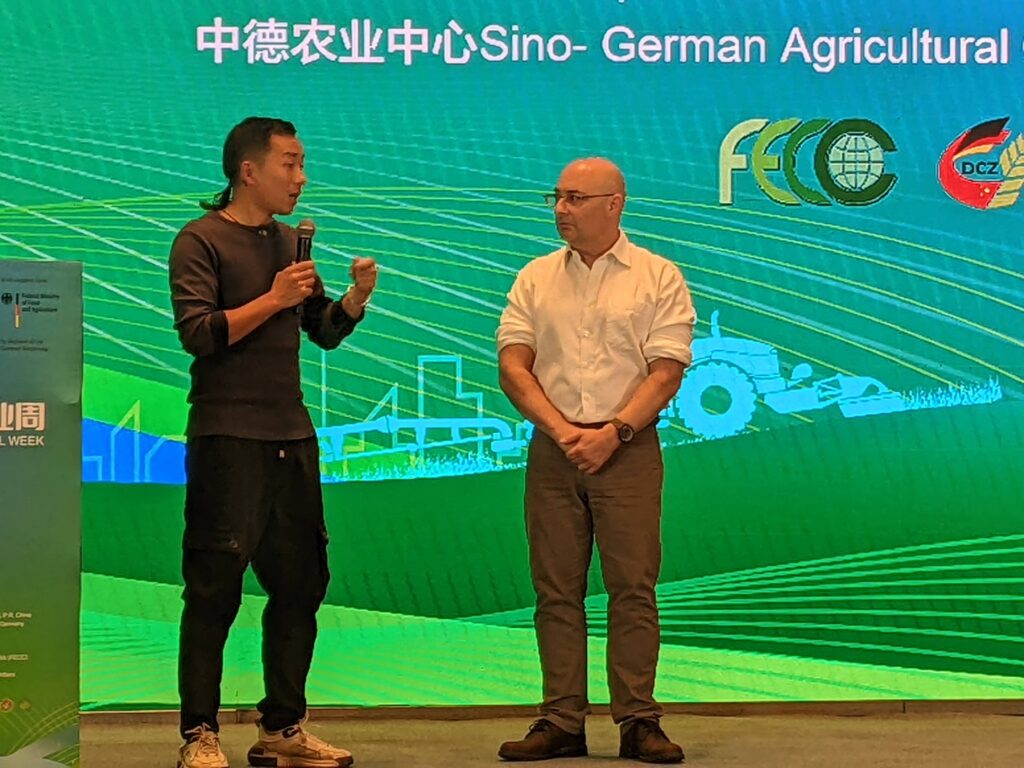Agri-food systems worldwide are facing enormous challenges – from persisting global hunger to climate change and the rapid degradation of key natural resources such as soils, water, and biodiversity. Under the heading “The Future of Agri-Food Systems”, the 9th Sino-German Agricultural Week provided a platform for over 200 stakeholders from Germany and China to jointly develop new ideas for a food system that provides healthy, nutritious food for everyone while staying within our planetary boundaries.
Download the conference program and speaker bios here.
Held from 31 October to 3 November in Bengbu City, Anhui Province, the event marked the first time since the end of the Covid-19 pandemic that a high-level delegation of policymakers from Germany had the opportunity to engage in people-to-people exchanges with their Chinese counterparts. Participants also included scientists and business representatives from both countries.
“We must be successful in creating a transformation towards food and agricultural systems that are healthy for both humans and the environment”, Parliamentary State Secretary Ophelia Nick from the Federal Ministry of Food and Agriculture (BMEL) emphasized in her opening address. As large agricultural producers and trade partners, both Germany and China have the responsibility to make a contribution towards this transformation, Ms. Nick told the audience.
Joint responsibility was also stressed by Chinese Vice Minister of Agriculture MA Youxiang, who, in his opening address, called on decisionmakers from both countries to “share successful experiences, promote practical cooperation, and jointly respond to global challenges”. Soil health, reduction of food loss and waste, as well as ecological agriculture were mentioned as fields of common interest by Vice Minister MA.
ZHANG Shuguang (Vice Governor of Anhui Province), Stephan Grabherr (Deputy Ambassador of the German Embassy), and HUANG Xiaowu (Municipal CPC Secretary of Bengbu City) all warmly welcomed the guests from near and afar and highlighted the importance of the Sino-German Agricultural Week as a place for bilateral engagement on agricultural issues.
Re-thinking the ways in which we produce and consume food
Download presentation
Download presentation
In the next four days, participants had the opportunity to exchange experiences and ideas in seven different sessions, various panel discussions, round tables. A field day with site visits to agricultural projects around Bengbu City offered participants further opportunities to gain first-hand insights into China’s agricultural development.
There was a broad consensus that our current food systems are broken and business as usual will not be possible. Much is at stake, the keynote speeches on the opening day made clear. With food and agriculture an important component of many development indicators, transforming food systems will be key to get the Sustainable Development Goals (SDGs) back on track, WANG Xiaoxi (Zhejiang University) remined the audience.
A transformation will require simultaneous changes in many different areas of the food system. While KE Bingsheng (China Agricultural University) and FAN Shenggen (China Agricultural University) highlighted the importance of policy and institutional design, Thomas Glauben (Leibniz Institute of Agricultural Development in Transition Economies) made a passionate plea for open markets and free trade to deal with local shocks and increase the overall resilience of the food system.
Marie Amman (EIT Food) put the spotlight on innovation. Presenting stories of successful food-tech entrepreneurs in Europe, her talk demonstrated how societies can accelerate innovation by connecting stakeholders right across the food system. ZHANG Zhongjun (FAO), in turn, showcased the momentum international initiatives such the UN Food Systems Summit can generate by aligning countries on their transformation targets. His speech also touched upon FAO’s role as a platform for trilateral cooperation, highlighting the successful cooperation between China, Germany, and Kenya in tea production as a prime example.
Agriculture and the environment go together
The German perspective was also represented at the keynote session. Bernd Schwang (BMEL) gave an overview of Germany’s transformation strategy in the agriculture and food sector. Quoting German Minister of Agriculture Cem Özdemir, he delivered a clear message: agricultural production and environmental protection are not a zero-sum game – both go together.
The role of organic farming – an important element in Germany’s transformation strategy – was further explained by Marcus Wewer (BÖLW), who used the example of Germany’s Organic Food Production Alliance (BÖLW) to show how cooperation between organic farmers, food processors, and retailers can help create more sustainable value chains and reduce the environmental footprint of agriculture.
The opening day ended with a panel discussion with WANG Xiaoxi (Zhejiang University), Katharina Riehn (Hamburg University of Applied Sciences and Vice President of DLG), LUAN Jingdong (Anhui Agricultural University), and Michaela Boehme (DCZ). Moderated by ZHU Jing (Nanjing Agricultural University) and Malte Müller (GFA), the discussion compared common challenges and experiences in food system transformation between Germany and China. Speakers also touched on issues such as the role of organic farming and dietary changes as our societies strive to develop a new vision for the future of food and farming.
Watch a recording of the 9th Sino-German Agricultural Week on our YouTube channel.
Bringing agro-ecology back in
On the following days, several thematic sessions allowed participants to explore these topics further. A session on ecological agriculture highlighted China’s impressive agro-ecological traditions and circular practices. According to XING Kexia (Rural Energy and Environment Agency), China’s Ministry of Agriculture and Rural Affairs (MARA) currently supports over 1,000 ecological farms, planning to scale up this number to more than 10,000 in the long run. Using circular economy principles, these farms aim to reduce the input of agrochemicals and greenhouse gas emissions while improving productivity.
LUO Shiming (South China Agricultural University) explained how traditional mulberry dike – fishpond systems, rice – fish co-cultures, and agroforestry practices can help increase biodiversity and improve soil and water resources. The adverse environmental effects of industrial agriculture have stimulated renewed interest amongst Chinese researchers in the country’s traditional agricultural systems, Professor Luo noted, but short-term investment horizons and a lack of compensation mechanisms for eco-system services remain key obstacles in rolling out agro-ecological principles more widely.
Re-integrating cropping and livestock farming will need to be an important part of the transition towards more sustainable food systems, the session showed. Drawing on data from over 300 national ecological farms with combined crop and livestock production, QIAO Yuhui (China Agricultural University) demonstrated that, compared to conventional farms, these farms were able to maintain yields while reducing chemical inputs, increasing soil organic matter, and improving the nutrient recycling rate. The findings show the greater potential of ecological farms for greenhouse gas mitigation, Prof. QIAO noted in her talk.
Similar results were reported by Deise Aline Knob (Gießen University) from Gladbacher Hof – a research farm operated by the University of Gießen and which combines organic farming principles with integrated animal-plant agricultural systems. The farm currently experiments with eco-functional intensification through the close integration of crop production and animal husbandry, aiming to close the yield gaps that still persist in organic agriculture, Dr. Knob explained.
Nutrient cycles and the role of livestock
How to better recycle nutrients throughout the agri-food system was another big issue addressed in this session. Heinz-Peter Mang (University for Science and Technology Beijing) and CHANG Yingmu (University of Leipzig, German Biomass Research Centre) presented best research findings from the utilization of agricultural residues and human waste to use as fertilizer and for biogas production.
Last but not least, Katharina Riehn (Hamburg University of Applied Sciences and Vice President of DLG) took a closer look at environmental impact of animal farming, advocating for a plant-forward diet selectively supplemented by animal protein. Meat, she argued, should once again be given the high value that it deserves, namely as a special food for festive occasions.
Session on soil health: soils are fundamental for agricultural production
Download presentation
Download presentation
Another session was dedicated to soil health. Chaired by Eva Sternfeld (DCZ), the online session explored research on soil improvement and the role of soils in climate change mitigation. While Wiebke Niether (Gießen University) and Claudia Heidecke (Thuenen Institute) presented measures that help soils store more carbon, thereby mitigating the effects of climate change, PENG Xinhua (Chinese Academy of Sciences), gave an overview of soil management practices with which to improve the productivity of the clay-rich Southern black soil dominating in Anhui Province – the location of this year’s Sino-German Agricultural Week.
Watch a recording of this session on YouTube.
Side forum by partner project puts spotlight on animal farming
The event also featured a side forum on the sustainable development of Sino-German animal husbandry, co-organized by the Sino-German Cooperation Project for Sustainable Animal Breeding and Husbandry in China (Sino-German Animal Husbandry Project) – one of DCZ’s associated partner projects – and the National Animal Husbandry Services (NAHS) of China.
Unlike in Germany, where especially younger generations are turning towards more plant-based diets, meat consumption in China is still growing, making it all the more important to improve production conditions. “It is essential to recognize the significance of this sector in ensuring food security, environmental protection, animal welfare, and the overall wellbeing of our populations following the concept of One Health”, Dieter Goertz (BMEL) pointed out in his opening address.
This was followed by a technical exchange of experts from both sides, including status updates by Henrik Delfs (Sino-German Animal Husbandry Project) and WANG Liwen (NAHS) on the demonstration farms that have been established as part of the technical cooperation in this field.
Watch a recording of this session on YouTube.
Agribusiness and food innovation: new formats for exchange
The 9th Sino-German Agricultural Week also provided a great opportunity for business exchange. In addition to a special agribusiness session dedicated to the topic of value chain transformation, German agribusinesses representatives had the opportunity to discuss with Parliamentary State Secretary Nick about their operations in China at a business roundtable organized by the German Agribusiness Alliance (GAA). A business exchange facilitated by the local government of Bengbu City helped match German businesses with potential cooperation partners in China. For example, ReGood, a German food start-up that reduces food waste by upcycling a beer industry byproduct into liquid flour, was invited by local brewery Snow Beer to inspect their facilities and discuss opportunities for introducing the technology in China.
Discussions also focused on accelerating innovation in the food industry. At a special food innovation panel, three representatives from the German food start-up scene – Theresa Hingsammer (Food Campus Berlin), Florian Stöhr (Seedhouse), and Maria Ammann (EIT Food) – discussed with moderator Melinda Hou (Good Food Fund) how to build food innovation communities for a sustainable and healthy food system. Examples of a start-up which uses black soldier flies to produce animal feed or technologies that produce genuine animal proteins through precision fermentation highlighted the potential of such innovation communities.
Not only start-ups but also the big players in the food and agriculture industry are preparing for the transformation of agri-food systems. Walter Benz (Big Dutchman) presented the ‚Enorm biofactory‘, a farm designed by his company to produce insects for animal feed. As Benz reported, Big Dutchman already runs one of these farms in Denmark and there are already two potential customers in China. MENG Xiangjie (BASF) and WEI Yuzhao (Bayer) presented new solutions to make agriculture more sustainable by, for example, reducing pesticides, while Peter Zhao (LEMKEN) showcased how intelligent agri-machinery can help with weed control. WANG Wei from Bengbu-based drinks company Tianlala introduced the strategies his company had implemented to reduce waste from plastic straws and packaging.
Sustainable Diets Slam gives the stage to young innovators and change-makers
Another new format pioneered at this year’s Sino-German Agricultural Week was a Sustainable Diets Slam. With George Zheleznyi (Cultimate) and Tim Gräsing (ReGood), two German contestants showcased solutions for alternative protein-based diets and for reducing food loss and waste. On the Chinese side, HUANG Ying and GONG Xixi from organic farm network Qian Yi Agriculture and LI Yan, founder of concept restaurant Xiaolou BISTRO & BOWL, presented innovative approaches for mainstreaming regenerative agriculture and promoting a Planetary Health Diet.
The four initiatives had been selected from a pool of applicants with the help of ProjectTogether and the German Agri-Food Society in Germany and Good Food Fund in China. After pitching their solutions to the audience, the four contestants were quizzed by moderator Thomas DuBois (Beijing Normal University) about the ins and outs of their approaches. On behalf of the German Federal Ministry of Food and Agriculture, who had provided funding support for the slam, Dieter Goertz closed the event with an award ceremony. thanking everyone for their inspiring contributions.
Field Day: visits to local agricultural projects
The diverse program also included a Field Day, giving participants the opportunity to visit local agricultural projects and gain a better understanding of China’s agricultural development. Site visits included Modern Farming in Wuhe – one of China’s largest dairy farms with 40,000 cows and a full value chain from breeding to milking and processing. The plant operates an integrated crop-livestock model, growing corn and wheat for animal feed on its on farmland while using cow manure to produce biogas and liquid fertilizer, which is then returned to the field.
Participants also visited a local mushroom farm that uses waste products from neighboring farms as substrate as well as one of Anhui Province’s most modern rice farms and a Huaihe River project.
What is next?
The 9th Sino-German Agricultural Week has been instrumental in re-starting personal exchanges following the COVID-19 pandemic and bringing together key stakeholders in the field of food and agriculture in both Germany and China. The debates have shown that much has been achieved in terms of modernizing China’s agricultural sector, but more still needs to be done in both countries to make our food systems more sustainable and environmentally friendly. In the year leading up to the 10th Sino-German Agricultural Week, we will intensify our exchanges on greening agriculture with all stakeholders.




